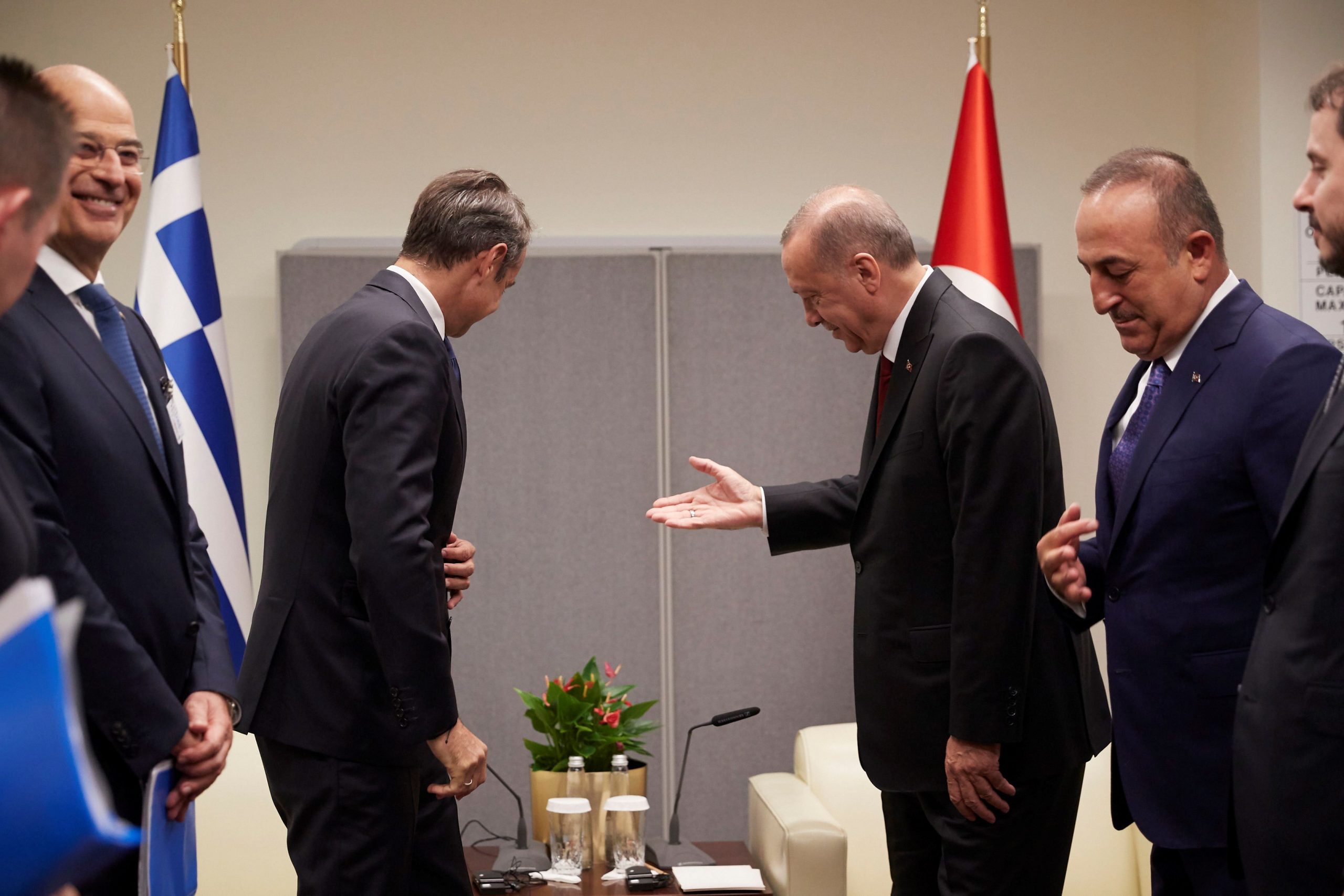The Greek and Turkish governments declare their commitment to the goal of the December meeting and to maintaining a positive climate. Even as Athens and Ankara both make it crystal clear their red lines and non-negotiable positions have not moved an inch. Since February, no overflights or other violations have been logged in the Aegean, with just a few exceptions, while both the President of Turkey, Recep Tayyip Erdoğan, and the members of his Cabinet have kept their rhetoric scrupulously free of threats and provocations.
Even if Athens may have perceived the occasional instance of lone voices failing to stick with the approved script, as when Turkish Foreign Minister Hakan Fidan referred to a “Turkish minority” in Thrace and to “fellow nationals” in the Dodecanese, which reflect long-held positions, the climate of 2020 and the years preceding it, which resembled nothing less than a “war waiting to happen”, have given way to a more measured discourse which seeks a return to the terms of the dialogue that preceded it. The Turkish side has also steered clear of commenting on statements made by Greek officials which would have been seized on in the past as a pretext for launching an attack on Athens.
For its part, Greek diplomacy, as Foreign Minister George Gerapetritis has repeatedly stated, should not take the current calm in Greek-Turkish relations for granted, nor underestimate its importance. Rather, it is one of the goals both sides are fighting for, since the absence of tension between the two sides provides the foundations on which trust can be built and dialogue proceed. A dialogue which, even if it does not lead to solutions, can nip tensions in the bud and prevent them from becoming full-blown crises and creating instability both between the two countries and in the region as a whole.
Even if some would like to disrupt Greek-Turkish relations in the light of the recent developments in the Middle East and the new crisis in Turkey-West relations they have given rise to, the Greek Foreign Ministry views the situation differently. As Deputy Foreign Minister Alexandra Papadopoulou stressed from both the floor of the Hellenic Parliament and at the “Kyklos Ideon” conference, given the fraught conditions in the Middle East, it is in the interest of both sides to remain calm, since neither wants to exacerbate an already volatile situation. Even if no one can predict the outcome of the dialogue.
Despite the talk of “express” solutions to the Greek-Turkish conflict, diplomats have insisted from the start that the Greek-Turkish dialogue will proceed one step at a time. They also continue to note near-obsessively that the most important thing of all is to keep calm, which is a truth Turkish diplomatic sources also acknowledge. For truly, as the diplomats strive to achieve a climate of calm and trust along with solutions to shared challenges, interrogating the other side’s words in search of an intention to provoke could hardly be described as constructive. It is a given that there is no intention on either side to make concessions on matters relating to national sovereignty, nonetheless they still stress the need for the Greek and Turkish publics to stop viewing tensions as normal and start familiarizing themselves with the logic of solutions.



